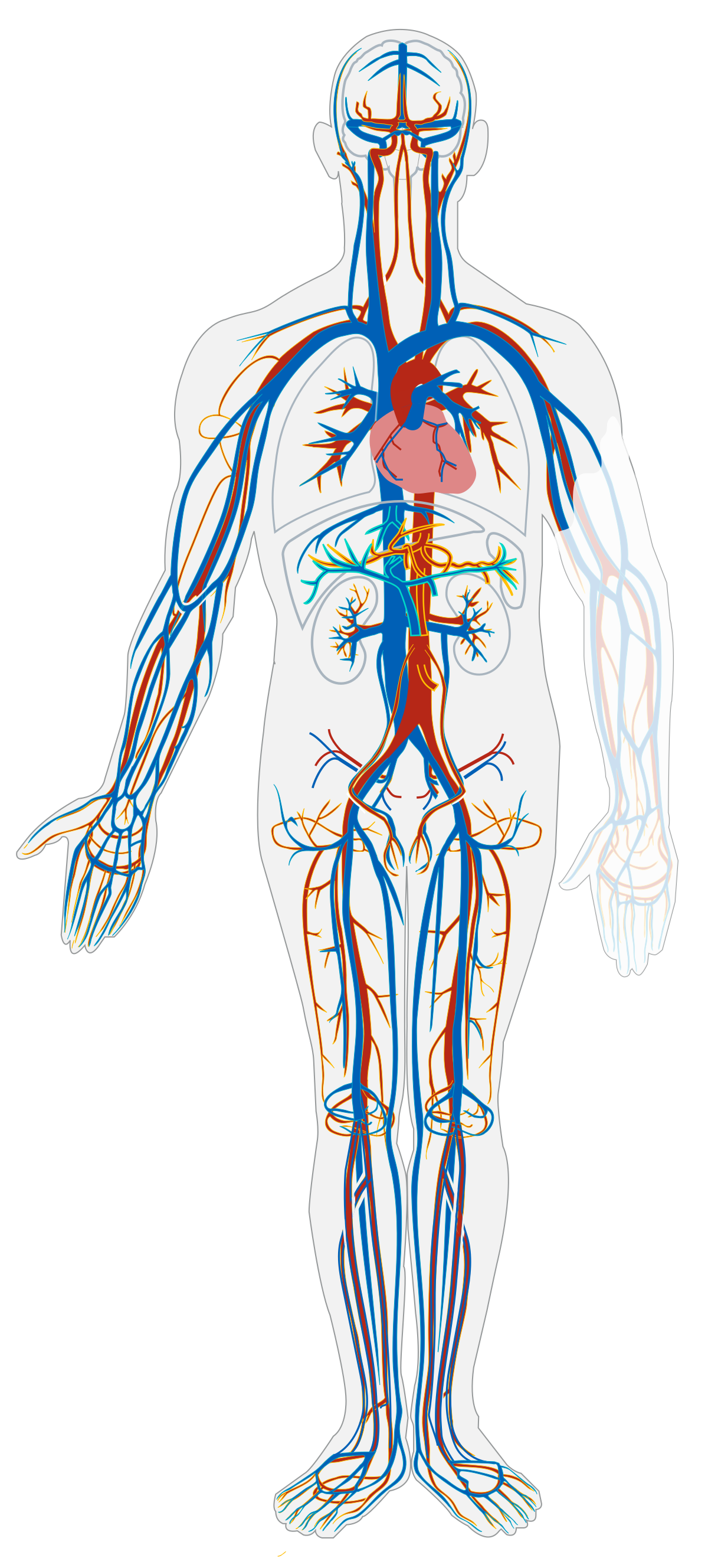This topic takes on average 55 minutes to read.
There are a number of interactive features in this resource:
 Biology
Biology
 Human biology
Human biology
 Physical education
Physical education
 Science
Science
The cardiovascular system is the transport system of your body. It delivers food and oxygen to your cells and removes the waste products such as carbon dioxide and urea. It is made up of blood (the transport medium), the blood vessels which act as the pipes and the heart which pumps the blood around the body.
Your cells need a constant supply of food and oxygen to provide the energy needed for all of the reactions of the body. At the same time the cells are constantly making waste products which are poisonous if they are allowed to build up.
Food is absorbed from the digestive system and oxygen is picked up in the lungs to be carried in the blood around the body. The food molecules and oxygen move into the cells from the blood by diffusion.
Waste products also move from the cells into the blood by diffusion. They are removed from the body in the lungs or by the kidneys.
The blood is carried around the body in a system of blood vessels which vary in size and structure. The main types of vessels are the arteries, veins and capillaries.
To transport substances the blood must be moved around the cardiovascular system and this is the function of the heart. Your heart is a muscular pump which starts beating long before you are born and continues to beat throughout your life around 70 times every minute.
